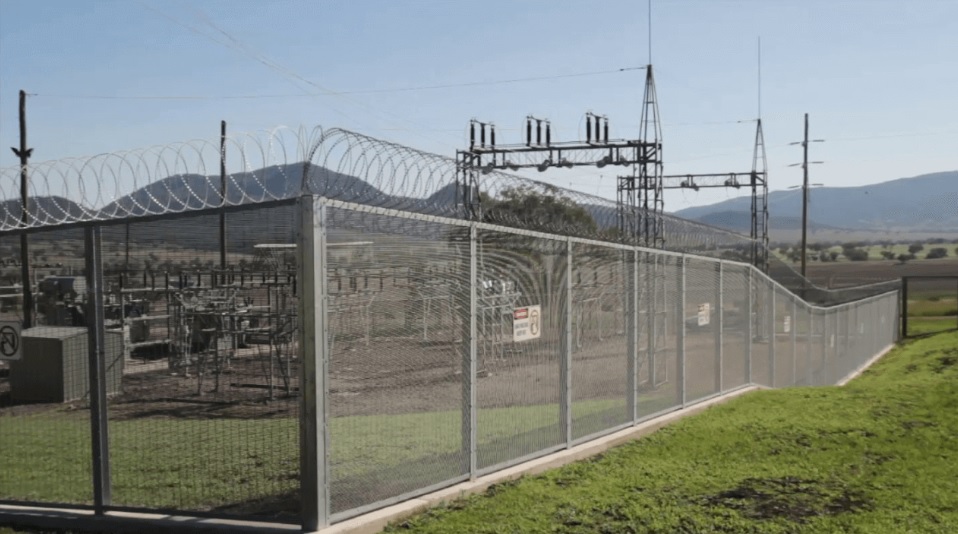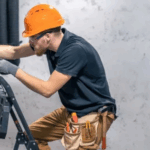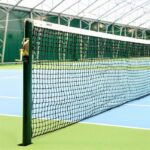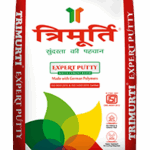
Security and efficiency are the backbone of any successful industrial site. Whether it’s safeguarding valuable assets or ensuring smooth operations, the right fencing solution plays a pivotal role. But not all fences are created equal, and choosing the perfect commercial fencing can feel like figuring a maze of options.
From deterring unauthorised access to withstanding the harshest conditions, industrial fencing needs to do more than just mark boundaries. It’s about finding a solution that balances durability, functionality and cost-effectiveness, tailored to your site’s unique demands. So, how do you ensure you’re making the right investment? Let’s explore the options that stand out in today’s market.
Overview Of Commercial Fencing Solutions
Commercial fencing provides tailored solutions to meet the diverse needs of industrial sites. Choices might range from robust barriers focused on security to visually appealing designs that enhance a site’s professional appearance. Each option combines durability, functionality, and cost-effectiveness to cater to specific operational needs.
Perimeter security often guides decision-making for industrial fencing. Steel palisade fences, for example, deliver high resistance against physical attacks while offering a deterrent appearance. Mesh panel systems, on the other hand, provide a combination of transparency and strength, allowing for visibility without compromising site protection.
Access control can also dictate fencing requirements. Gates integrated with automated systems like keypads or biometric scanners ensure controlled entry, reducing the risk of unauthorised access. In high-risk areas, these might combine with additional safety features such as vehicle barriers or double-layer fences.
For industries exposed to harsh environmental conditions, materials capable of withstanding corrosion or extreme temperatures become essential. Galvanised steel and powder-coated finishes resist wear, maintaining performance over time. If aesthetics are vital, fencing options such as decorative metal might add visual appeal without reducing durability.
Compliance with local regulations should direct your choice of fencing. Height restrictions, anti-climb features, and spacing standards might influence material selection and installation design. Ignoring these considerations could lead to fines or operational delays.
Maintenance influences the long-term viability of fencing solutions. Materials designed for low upkeep, including treated wood or reinforced PVC, reduce costs and ensure uninterrupted site functionality. When advanced security systems accompany fencing, regular checks can preserve integrated technology.
What defines the best solution for your site is its unique balance of security, functionality, and cost. Which fencing best reflects your site’s operational priorities? Every solution aligns with a purpose, ensuring the needs of industrial environments are met effectively.
Types Of Fencing For Industrial Sites
Selecting the right fencing for industrial sites requires an understanding of specific needs like security, durability, and visibility. Each type of fencing offers distinct benefits tailored to different operational demands.
Chain Link Fencing
Chain link fencing offers a practical solution for securing perimeters while maintaining visibility across your site. This fence type uses interwoven galvanised or coated steel wires to create strong yet lightweight barriers. It resists corrosion, making it suitable for challenging outdoor conditions. For added security, you might consider barbed wire or privacy slats to limit unauthorised access. With its modular design, chain link fencing can adapt to various layouts, ensuring seamless coverage even over uneven terrain.
Palisade Fencing
Palisade fencing strengthens site security with its intimidating structure made of vertical steel pales. Robust and resistant to tampering, it deters intruders effectively. The sharp-topped pales and anti-climb design make physical breaches nearly impossible. This fencing type suits sites with high-security needs, including warehouses and power plants. Finishes like galvanisation or powder coating extend its lifespan, even in corrosive environments. It also enforces a professional, imposing appearance, reinforcing your site’s secure image.
Mesh Panel Fencing
Mesh panel fencing prioritises visibility without compromising durability. It features welded steel panels secured to posts, balancing sleek design with strong protection. This type offers clear sightlines, useful for CCTV monitoring or safety inspections. The narrow apertures make cutting or climbing difficult, enhancing security. You might prefer galvanised or powder-coated finishes which add weather resistance and customisation options. It’s often chosen for areas requiring a subtle yet reliable boundary.
Electric Fencing
Electric fencing deters intruders through controlled electric pulses designed to discourage contact. Often used alongside traditional fencing, it provides an extra layer of defence for high-risk sites. Modern systems incorporate alarms and monitoring systems to alert you of breaches in real time. You can adjust voltage levels based on security priorities, adding flexibility. Electric fencing works well for perimeters requiring advanced protection, especially those storing valuable equipment or materials.
Key Considerations For Choosing Fencing Solutions
Industrial sites demand fencing tailored to their distinct challenges. Choosing the right solution involves evaluating critical factors to ensure security, operational efficiency, and cost management align.
Security Requirements
Fencing must provide robust protection against unauthorised access. High-security options, such as palisade fencing with pointed tops, act as strong physical deterrents. Depending on your site’s needs, perimeter fences can include additional measures like barbed wire or anti-climb mesh. Prioritise solutions designed to handle attempted breaches and integrate access control systems where regulated entry is essential.
Durability And Material Quality
Fencing materials directly impact longevity and effectiveness. Galvanised steel and powder-coated finishes resist rust and wear, making them suitable for harsh environmental conditions. Heavy industrial use might require reinforced components, while areas prone to extreme weather benefit from corrosion-resistant materials. Assess how long your chosen material can maintain functionality under continuous use.
Cost-Effectiveness
Balancing upfront costs with long-term value is key. While durable materials and advanced security features might seem costly initially, reduced maintenance and repair expenses over time can offset this investment. Evaluate how essential features, such as weatherproof coatings or integrated systems, contribute to overall savings. Consider scalable solutions that adapt as operational demands grow.
Maintenance Needs
Low-maintenance solutions minimise disruptions and reduce upkeep costs. Powder-coated or galvanised fences require fewer repairs due to their resistance to corrosion and environmental damage. In high-security perimeters, regularly inspect for wear or compromise in barriers like mesh panels or gate mechanisms. Prioritise materials and designs that ensure long-term operational reliability.
Benefits Of Installing Commercial Fencing
Enhanced Security
Commercial fencing acts as a critical deterrent against unauthorised access. Industrial fencing solutions might incorporate features like anti-climb designs, razor wire or reinforced panels. These elements increase the difficulty for intruders and reduce the likelihood of security breaches. For high-risk sites, fencing can integrate with surveillance or alarm systems to provide an additional layer of protection. Establishing such measures ensures your property and equipment stay secure, even in areas prone to criminal activity.
Improved Aesthetics
While often seen as entirely functional, certain fencing options can enhance your site’s professional image. Designs such as mesh panels or decorative steel can help deliver a sleek, modern appearance. A visually appealing fence can complement surrounding structures and create a polished and inviting external façade. This proves invaluable if your facility regularly interacts with clients, visitors, or stakeholders. Choosing finishes like powder coating allows you to match the fencing seamlessly with your company’s branding while extending its lifespan.
Clearly Defined Boundaries
Fencing establishes unambiguous perimeters that help streamline your operations. It creates clear physical markers to separate your site’s spaces, directing foot or vehicle traffic efficiently. This assists workers, visitors and delivery drivers in accessing appropriate areas without causing disruption. Defined boundaries like these prevent accidental trespassing or operational overlap where safety might otherwise be compromised. Use of signage alongside fencing can communicate further restrictions or access protocols to maintain order.
Compliance With Regulations
Industrial sites may have strict legal requirements for fencing due to safety or zoning laws. Commercial fencing solutions should meet specifications like minimum height standards or the use of specific materials. Choosing compliant designs avoids the risk of fines or enforced changes later. It ensures you’re adhering to standards set by local authorities or regulatory bodies. Working with a specialist provider helps guarantee your fencing aligns with both safety codes and environmental considerations, such as sustainable material options.
Leading Providers Of Commercial Fencing Solutions
When selecting a provider for industrial site fencing, expertise and reliability are essential. Leading companies often focus on tailored solutions that meet complex site needs. These providers combine high-quality materials and advanced technologies to ensure installations are secure, durable, and regulation-compliant.
Providers like Jacksons Fencing in the UK prioritise long-term value through precision-engineered products and expert installation. Offering options such as galvanised steel fencing, they focus on rust resistance and low-maintenance finishes. Their acoustic barriers can minimise noise pollution, making them suitable for sites near residential areas.
Companies such as CLD Fencing Systems specialise in mesh panel solutions that maintain visibility while enhancing site protection. Their innovative products often integrate with access control systems, creating seamless security layers. With an emphasis on anti-climb designs and modular adaptability, they cater to evolving operational requirements.
If your site faces specific environmental challenges, providers like Zaun offer facilities-focused services. Their extensive range includes corrosion-resistant materials and custom barrier options for harsh conditions. Many of their fencing solutions integrate with surveillance, ensuring cohesive perimeter security.
For large-scale operations, firms like Betafence deliver comprehensive solutions including palisade fences, gates, and electric security extensions. Their specialised products balance strength and aesthetic appeal while adhering to stringent safety standards.
These providers also deliver consultations to streamline the decision-making process. They might assess your site’s layout, security risks, and operational needs before suggesting bespoke designs. Does your site require high-security access points or decorative elements to maintain a professional environment? Many companies ensure both functionality and aesthetics align with your priorities.
Choosing a trusted provider can mitigate risks during and after installation. Supported warranties, durability guarantees, and proper documentation often reflect professional standards. With the right collaboration, your fencing solution serves as both a protective barrier and a value-enhancing investment.
In Closing
Choosing the right commercial fencing for your industrial site is a critical investment that impacts security, efficiency, and long-term functionality. By prioritising durable materials, tailored designs, and compliance with regulations, you can ensure your fencing solution meets both operational and aesthetic demands.
Partnering with a trusted provider is key to achieving a high-quality installation that safeguards your assets and supports your site’s unique requirements. With the right expertise and solutions in place, you’ll create a secure and professional environment that stands the test of time.





